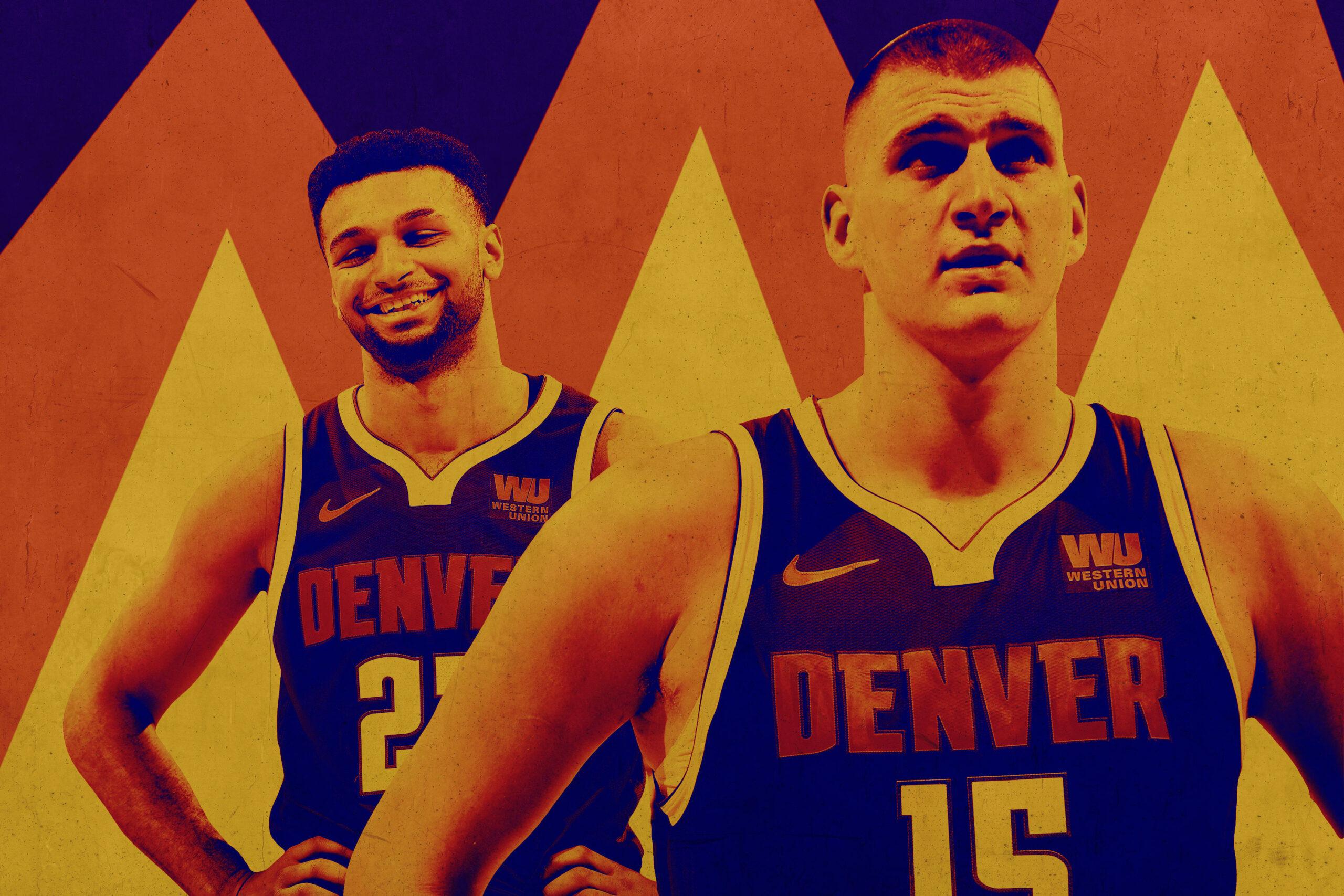
The NBA offseason established a bunch of new story lines that require closer inspection. Throughout the next month-plus, we’re giving second thoughts to the most intriguing ones.
Today’s question: Are we sure the Nuggets have another level to hit?
It can be difficult to consider the Denver Nuggets a sleeping giant in the NBA. Perception doesn’t really allow for it, not when plenty of more-high-profile franchises made headline-dominating deals for some of the league’s most recognizable stars. The Nuggets were the second-best team in the West last season, but their achievements were largely met with skepticism; there just isn’t much mental real estate for most NBA fans when it comes to a team that has spent much of the past decade either on the fringes of contention or the fringes of relevance. Attendance numbers have spiked in the past two seasons, yet Denver is still a city where an exciting Nuggets postseason run could be overshadowed on sports talk radio by analysis of the Broncos’ fifth-round draftee.
But the Nuggets have earned the right to be considered one of the best teams in the NBA, even though they weren’t one of the four teams in the Western Conference that landed at least one star this summer. After five consecutive seasons outside of the playoffs, Denver stormed the gates last season, playing two compelling seven-game series and legitimizing Nikola Jokic’s greatness. For the first time in a long time, the Nuggets will now have to live up to the rigid set of expectations that come with that.
Jokic’s brilliance in those 14 playoff games last season dramatically shifted the Nuggets’ trajectory. There were questions about his conditioning; Jokic averaged 39.8 minutes per game in the playoffs, up from 31.3 in the regular season. There were concerns about how he’d have to change his game with teams building specific defensive game plans around him; turned out, teams had few counters to what he could do when fully engaged. Against the Spurs and Trail Blazers, he managed to average an astonishing 25.1 points (on 50.6 percent shooting from the field, and 39.3 percent from 3), 13.0 rebounds, and 8.4 assists across two series.
Jokic, altruistic in nature, became a destroyer. We can talk about his gelatinous physique or how he moves like an overgrown mutant sloth, but it’d probably be more instructive to note just how inconsequential those limiting factors have been in the grander scheme of things. What do you do with a ballhandling center who can pull up from 3, make passes that, at 7 feet tall, no one else in the world can make, and bully people down low? He’s an impossible cover, specifically because of how his mere presence, both in terms of space and skill set, alters the floor dynamics of both his team and the opposition. You can’t give him space, but you also can’t bottle him up before he pinpoints where to swing the ball. We learned what he was capable of at the highest level of competition in his NBA career thus far—it’s hard to imagine, barring injury, it going anywhere from here but up. He is already a well-rounded player, but he could always stand to get in better shape and play more consistent defense—two interconnected areas of improvement.
Building around a player with such defined strengths and weaknesses requires a long view of what such a player needs to thrive. The Nuggets didn’t make many splashes in the offseason outside of handing Jamal Murray a five-year, $170 million extension, but smaller acquisitions like trading a first-round pick for Jerami Grant show that Denver’s front office has a clear understanding of what their star player needs to succeed: long, versatile, athletic defenders who can cover for Jokic on one end, and become active recipients of his playmaking on the other.
More important, however, is the stasis the Nuggets maintained. The NBA landscape these days shifts as swiftly as Rubik’s Cube panels do, but continuity is paramount for a team like the Nuggets, who rely so heavily on Jokic’s individual genius to function as an offense. The reads, the timing—it all requires an organic psychic connection, and that in turn requires familiarity. Nuggets reserve point guard Monte Morris recently lauded Jokic’s knowledge of every team’s defensive schemes and how to attack them. The Nuggets exercised their $30 million option on the final year of Paul Millsap’s contract rather than cut him loose and open up cap space, ensuring the fulcrum of an improved defense stays put in the frontcourt.
But consistency is only one part of the battle. Jokic can make passes from angles seldom attempted, but such seemingly impossible passes work only if the recipient is aware of its possibility. What the Nuggets need now, above all else, is consistency from their supporting cast. Gary Harris, the team’s best perimeter defender, has to stay healthy. Murray has to prove he can serve as both primary and secondary option night in and night out. They’ll need reserves like Morris and Malik Beasley to prove their efficient 2018-19 seasons are sustainable.
The Nuggets have built a team capable of growing together, which, for an elite team, has become exceedingly rare. The Nuggets don’t need to make any drastic maneuvers to improve their ceiling. They are in win-now mode, but they also still have some leeway in terms of waiting to see how things unfold, both internally and with the league at large. They can get significantly better simply by fostering their young stars’ next steps forward—Jokic is 24, Harris is 24, and Murray is 22. Denver, then, can be seen as a sort of antidote for the modern NBA condition. Do the Nuggets have another level to reach, another gear to enter? Nothing is certain, not for a team with so many young pieces still finding their way in the league. But it’ll be refreshing to watch them figure it out at Jokic’s pace.

